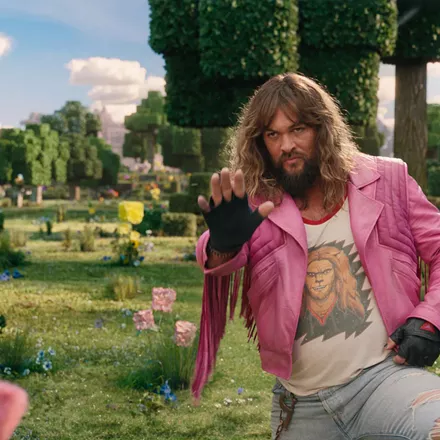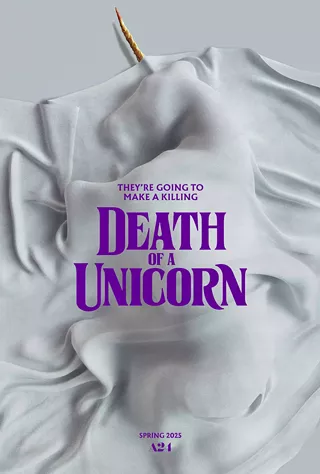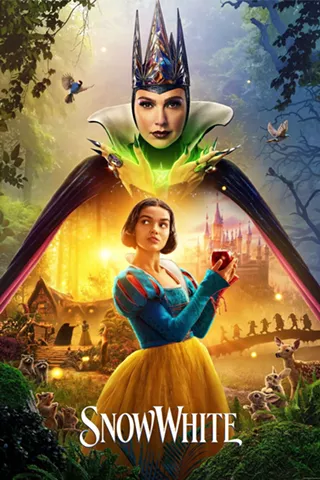Palestinian filmmaker Hany Abu-Assad, Oscar-nominated for his brilliant 2005 film Paradise Now, has notched another well-deserved Best Foreign Language Film Oscar nod for his latest, the intense and gripping Omar.
Adam Bakri delivers a commanding performance as the title character, a Palestinian baker who routinely scales a zoning wall to see his girlfriend, Nadja (Leem Lubany). While most dudes trying to see their girlfriend might find themselves braving a little traffic or dodging overprotective dads, Omar has to dodge bullets and bullying Israeli soldiers to pass a note to his beloved.
Omar schemes with his buddies Tarek (Iyad Hoorani) and Amjad (Samer Bisharat) to strike at the Israelis, ultimately taking part in a shooting of an Israeli soldier through a camp gate in the middle of the night. He's eventually arrested. And although he wasn't the one to pull the trigger, he's in a lot of trouble all the same.
The imprisoned Omar then endures some horrific torture while refusing to talk. He eventually winds up being interrogated by Agent Rami (Waleed Zuaiter), who affords Omar a chance to leave prison as long as he turns his friends in.
The movie then becomes a back-and-forth as Omar struggles with his political loyalties and fears for his future. He eventually finds himself in a strange love triangle involving his girl, as if the problems with Israeli police aren't enough. In trying to balance his love life, he must also deal with repeated returns to prison and high-pressure demands from Rami.
Credit goes to Abu-Assad for making this a powerful political thriller and satisfyingly told love story. Nothing in this film is simple, and you have to stay on your toes to follow all of the plot twists and turns. Abu-Assad seems to be saying that no matter how high the political stakes and body count, people will still make the age-old errors when it comes to love and interpersonal relationships. The complexity of the love story is not weighed down by preachy political intrigue.
Bakri strikes all the right notes as an earnest, struggling, cornered young man who can't rely on anything in his life. If he falls in love, he gets screwed. If he joins the resistance, he gets tortured. If he informs, well, he will eventually suffer the fate of a traitor, won't he? Through all of this hell, he keeps baking the bread.
Bakri has an expressive face that allows him to convey emotions from love to full-on anger without overdoing it. It's the sort of nuanced work that gets guys Oscars here in the States.
Zuaiter is equally powerful as Rami, the Israeli intelligence agent who needs answers fast, and seems to be taking on a patriarch role in Omar's life. Yes, Rami is using Omar to enforce the law, but he almost seems to be taking the young, troubled man under his wing in a strange way (and he really likes his Tic Tacs). In many movies, his type of character might come off as menacing and evil. Here, he makes Omar's plight and decisions even tougher by not being a totally bad guy.
Zuaiter makes the typically unsympathetic character somebody who may or may not have a sense of compassion for Omar. Only his character really knows.
As the young woman who is seeking romance in the occupied territories, Lubany is convincing as a person who has trouble processing everything and perhaps makes a few bad decisions. Hoorani makes an impact as Nadja's brother and the resistance ringleader.
Sometimes the film feels like it will never settle down, and I think that's the point. People like Omar are very unsettled when it comes to where they live, and that unsettled vibe pervades all walks of life. Omar can't catch a break. Minus the particular love story portrayed in this film, his plight is probably based somewhat on the reality of many men his age.
I like the film's chances for an Oscar come March. France, for some strange reason, did not submit Blue is the Warmest Color for consideration, so I don't see any real formidable competition besides Paolo Sorrentino's lush The Great Beauty.
The film culminates in one of those moments that you sort of sense is coming while watching the scene, but still shocks when it occurs. Abu-Assad has made the rare political thriller that doesn't pontificate and has a heart. Omar's last conversation with Nadja is heartbreaking. It's pretty clear from the onset that he isn't going to be afforded a fairy tale ending.















